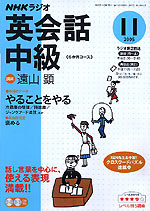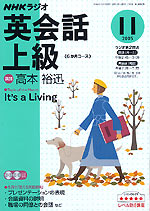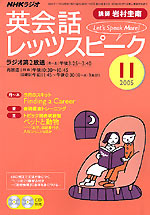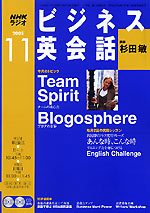PR
X
キーワードサーチ
▼キーワード検索
カレンダー
2025年11月
2025年10月
2025年09月
2025年10月
2025年09月
2025年08月
2025年07月
2025年07月
フリーページ
前置詞はイメージで捉えよう

On

Off

At

Up

Down

Over

Under

In

Out

With

Through

At と On と In

About

Every

Each

Halfの不思議(おまけ)
英語力の土台を固めよう

自動詞

他動詞 Vol.1

他動詞 Vol.2

第1文型

第2文型 その1

第2文型 その2

第3・4文型

第5文型 その1

第5文型 その2

現在時制 その1

現在時制 その2

現在完了時制

完了時制 それとも?

受身 その1

受身 その2

助動詞+have+p.p

仮定法の入り口

仮定法の基礎工事

仮定法からの派生 その1

仮定法からの派生 その2

May well の派生 その1

May well の派生 その2

May well の派生 その3

話法の転換 その1

話法の転換 その2

話法の転換 その3

数の一致 その1

数の一致 その2

数の一致 その3

数の一致 その4

分詞 その1

分詞 その2

不定詞 その1

不定詞 その2

不定詞 その3

不定詞 その4

不定詞 その5

不定詞 その6
I'll Sleep When I'm…
り〜やん☆(^-^)ノさん
一日一冊:読書日記… 本のソムリエさん
ネイティブの幼児が… Michelle♪さん
Life goes on june17thさん
ロスで唯一全クラス… ロスの英会話センターBYBだよ。さん
一日一冊:読書日記… 本のソムリエさん
ネイティブの幼児が… Michelle♪さん
Life goes on june17thさん
ロスで唯一全クラス… ロスの英会話センターBYBだよ。さん
コメント新着
日本には超安くて、超実用的な素晴らしい英語勉強教材があります。それがNHKラジオ講座です。2004年4月まで外資系企業のニューヨーク事務所で働いていた筆者と一緒に、ラジオ講座を活用してお勉強しませんか!
| ■■■ | NHKラジオ講座のテキスト(英会話関係) | ■■■ |
「4行日記+α」を始めた筆者の日常生活はこちらで見れます
テーマ: 英語のお勉強日記
カテゴリ: ディクテーション
Paper Chase Day (5) Wednesday, December 7
■ discard 処分する、捨てる、廃棄する
1) dis という接頭語を使った言葉はいろいろある
disown, discredit, disappoint, discrepancy
2) Another one is "disrespect," which means treat someone badly.
That's recently been shorten just to "dis." He dissed me so I dumped
him.
■ stuffaholic 物中毒者
3) There's a bunch of examples here. These are very common,
4) There's a lot. I saw couple others, biblioholic, which is
somebody who loves and collects books and infoholic, somebody who, I
guess, can't get enough information.
5) I'm sure more and more words using that ending will be coined,
because it's very easy to form them and it's a kind of idea. Well,
there's almost always someone who overdoes something.
■ pack-rat attitude
6) You can also say the place where that person keeps all their
things is a rat's nest.
7) I think some parents might describe their kids rooms as rat's
nests.
rat race = し烈な出世競争
I smell a rat. = 何かおかしい (ねずみの匂いがする)
9) And it also includes the idea not just something strange, but
it's strange because someone has evil intensions.
10) copy cat = 猿真似
kid comes and does to same thing. It's a scornful word when kids use
it, "Oh, you copy cat."
11) parrot ⇒ おうむ、他人の言葉を真似る人、(動)おうむ返しに言う
12) You probably use it in situations where somebody is saying
something that another person uh already said, but the current
speaker isn't really thinking. They are just repeating what they
heard. They are parroting their boss or they're just parroting what
they heard somewhere else. They either don't really understand it or they don't really mean it.
■ reinvent the wheel 無駄な努力をする
13) I think that the key point of this phrase is the needless. It's
the needlessness of going back to the beginning and inefficiency and
waste of time that's involved. A similar phrase start from
scratch means that you need to go back to the beginning, it's a good
thing.
14) Please tune in again next time.
■ discard 処分する、捨てる、廃棄する
1) dis という接頭語を使った言葉はいろいろある
disown, discredit, disappoint, discrepancy
2) Another one is "disrespect," which means treat someone badly.
That's recently been shorten just to "dis." He dissed me so I dumped
him.
■ stuffaholic 物中毒者
3) There's a bunch of examples here. These are very common,
4) There's a lot. I saw couple others, biblioholic, which is
somebody who loves and collects books and infoholic, somebody who, I
guess, can't get enough information.
5) I'm sure more and more words using that ending will be coined,
because it's very easy to form them and it's a kind of idea. Well,
there's almost always someone who overdoes something.
■ pack-rat attitude
6) You can also say the place where that person keeps all their
things is a rat's nest.
7) I think some parents might describe their kids rooms as rat's
nests.
rat race = し烈な出世競争
I smell a rat. = 何かおかしい (ねずみの匂いがする)
9) And it also includes the idea not just something strange, but
it's strange because someone has evil intensions.
10) copy cat = 猿真似
kid comes and does to same thing. It's a scornful word when kids use
it, "Oh, you copy cat."
11) parrot ⇒ おうむ、他人の言葉を真似る人、(動)おうむ返しに言う
12) You probably use it in situations where somebody is saying
something that another person uh already said, but the current
speaker isn't really thinking. They are just repeating what they
heard. They are parroting their boss or they're just parroting what
they heard somewhere else. They either don't really understand it or they don't really mean it.
■ reinvent the wheel 無駄な努力をする
13) I think that the key point of this phrase is the needless. It's
the needlessness of going back to the beginning and inefficiency and
waste of time that's involved. A similar phrase start from
scratch means that you need to go back to the beginning, it's a good
thing.
14) Please tune in again next time.
お気に入りの記事を「いいね!」で応援しよう
【毎日開催】
15記事にいいね!で1ポイント
10秒滞在
いいね!
--
/
--
© Rakuten Group, Inc.















